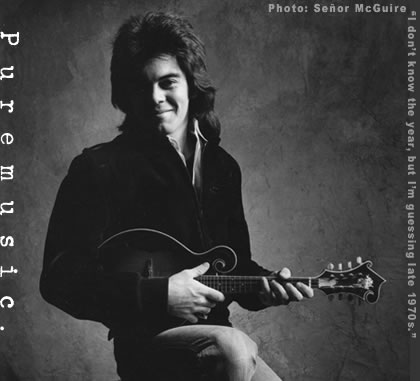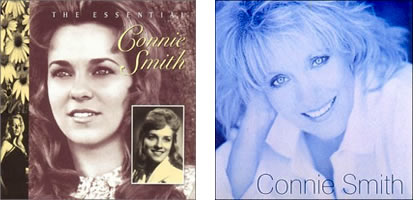
A Conversation with Marty Stuart (continued)
PM: You pulled a couple of them out in that Ryman show, but maybe you'd share something with the readers about some of the amazing instruments in your collection and from whence they came.
MS: Well, the Pop Staples guitar is a gift from Mavis, Yvonne and Purvis. And that's the one I played at the Ryman. And of course, there's the Clarence White guitar.
PM: Right. And there was a great old Martin.
MS: Oh, the one from Hank, yeah.
PM: How did you come into that Hank Williams acoustic?
MS: I traded Johnny Cash a Merle Travis guitar for it.
PM: [laughs]
MS: And there's a 1957 J-200 that was Johnny Cash's that was on all those album covers that's pretty great.
PM: Oh, my God…
MS: Yeah.
PM: Yeah, very few on the planet can boast of a collection like that, and the ones that can aren't playing them like you are, on stage.
MS: Well, that's the idea, is they got to work.
PM: Yeah, they got to work, and they got to be played, because it's a crime when guitars that came from holy places sit in somebody's glass case--
MS: I know. We played a concert with Ricky Skaggs Saturday night. And after the concert, I jumped on his bus, and we were listening and looking at DVDs. And he had been a part of that ceremony last week where they put Bill Monroe's mandolin in the Hall of Fame. But before they put it under glass, he got to get it out and play it for a couple hours, and this guy videotaped, and I was watching it. The first question I asked him, I said, "Was that mandolin glad to be out of the case?" He said, "Oh, man, it's like it was screaming to get out and get played."
PM: [laughs] Oh, it's such a shame to think of it just getting glassed up.
MS: I know it, I know it.
PM: The Marty story that I like to tell is one about when I first got to town in '89, I was the freelance Mesa Boogie dealer at the time.
MS: Sure.
PM: And I stopped by SIR to loan somebody something. And the guy at the counter said, "Hey, Frank, this is Marty Stuart." And you turned around and you said, "Hey, man, you want to play Clarence White's guitar?"
[laughter]
PM: My jaw about hit the ground, man. And when I tell that story, people say, "Yeah, well, that's just the kind of guy Marty is."
MS: You're still welcome to play it. [It's a double Telecaster, with two bodies back to front.]
PM: [laughs] I saw you playing it the other night at the Mercy Lounge, and that was an incredibly rockin' show.
MS: Oh, that was a fun one.
PM: Is there an instrument that you haven't tried yet that you wish you could play?
MS: I still wish I could play the guitar.
[laughter]
PM: I know you've done some interesting projects with Billy Bob Thornton, but I don't really know the nature of them. Could you share something about those with the readers?
MS: Yeah. It started with me scoring some of his films. One was Daddy and Them, one was called Waking up in Reno, and I think the big one was All the Pretty Horses.
PM: Oh, I saw that. That was fabulous--and great music, too.
MS: Thanks.
PM: You read that book then, too, probably.
MS: I never read the book.
PM: The book was unbelievable.
MS: Cormac McCarthy is one of my favorite authors, but I didn't want the book to influence what I was playing. So after that, Billy Bob decided he wanted to be a recording artist.
PM: Oh, that was after that.
MS: Yeah. And so we made two or three records together. And I love working with Billy Bob, because the sky is the limit. He's probably the most creative human being in the world. And I just think he's one of the greatest actor/director/writers that God ever sent our you way.
PM: Yeah, he's an incredible brain.
MS: You bet.
PM: I once went out to the high desert of California and did an interview with him about his music, too. He was doing a video with Travis [Tritt] out there at the time, so I went out and we talked about his music. [See that interview here.] He's a really amazing person.
MS: He really is.

PM: I listened to a couple of her beautiful hits this morning, maybe you can tell us a little about your wife, Connie Smith.
MS: Well, I think that what's left of that great era, concerning the ladies, is probably Dolly and Connie.
PM: Right.
MS: And both of them just have those unrepentant pipes.
[laughter]
PM: That's a lovely adjective.
MS: And to my ears, they carry, from their perspective and genre, the greatness of it on their shoulders.
PM: Yeah, the sound of that kind of purity is truly rare.
MS: I mean, I'm so tuned in to what Connie is about, and who she is, and how she sings. If you held a gun on her, she couldn't tell you how she does it. He opens her mouth, and it just happens.
PM: [laughs]
MS: And so when I sit and watch videos of whatever genre, from country to pop or whatever, I see girls that just do amazing vocal tricks, and then so many of the girl singers in country music, they just kind of show up and do what's told. And I think, man, it's so refreshing when that's over to turn to Connie and say, "Sing so-and-so," and hear her sing it.
PM: Yeah!
MS: Hear how it's really done.
PM: Yeah, somebody's got to tell these girls it's not about melisma, it's about charisma.
[laughter]
MS: That's right! continue
print (pdf) listen to clips puremusic home